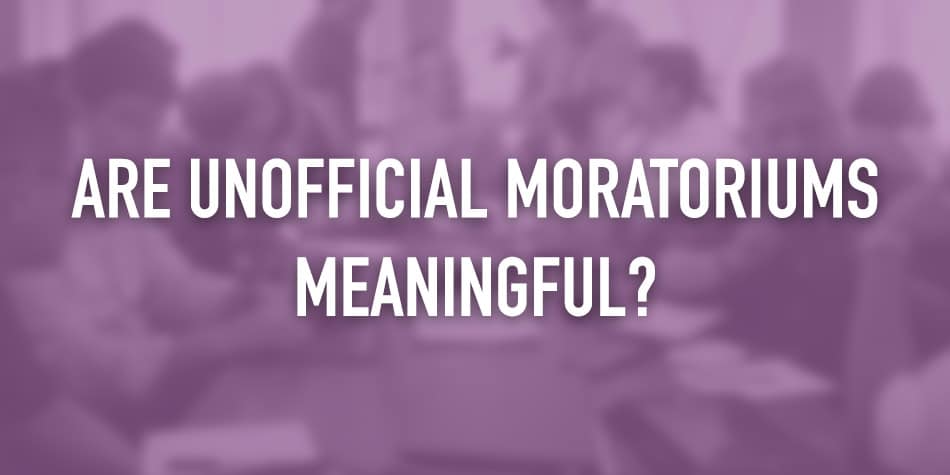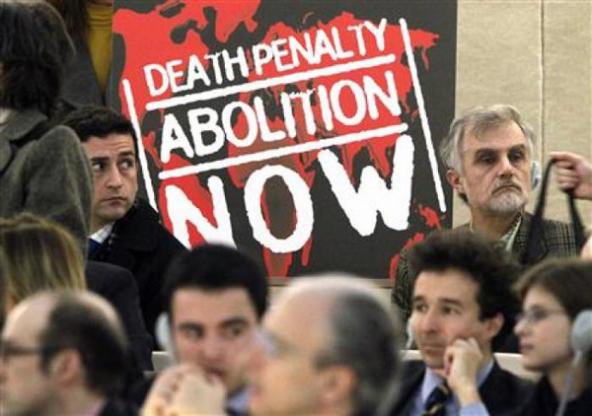
The United States Supreme Court’s End of Term Death Penalty Opinion is Against the US Trend Away from the Capital Punishment
Governance
The death penalty has been a focus of attention in the United States in recent weeks and the World Coalition Against the Death Penalty takes the opportunity to support the call of the United Nations Special Rapporteurs on Summary Executions and on Torture, for the establishment of a federal moratorium on the imposition of the death penalty with a view of abolishing it.
A few short days after the Special Rapporteurs’ call for moratorium, the Supreme Court of the United States issued its decision in the case of Glossip v. Gross, which challenged the use of a lethal injection drug that has resulted in tortuous botched executions, with prisoners suffering in agony for as long as two hours. This practice is cruel, inhuman and degrading punishment and violates international human rights standards and instruments. The Court ruled that use if the drug is permitted.
The members of the World Coalition find the Court’s language, written by Justice Samuel Alito, complaining that “[t]he prisoners failed to identify a known and available alternative method of execution….” to be inappropriate. Prisoners should not be assigned the responsibility for identifying a method for their own executions. Justice Sonia Sotomayor stated in her dissent,
The court’s available-alternative requirement leads to patently absurd consequences.
Petitioners contend that Oklahoma’s current protocol is a barbarous method of punishment — the chemical equivalent of being burned alive. But under the court’s new rule, it would not matter whether the state intended to use midazolam, or instead to have petitioners drawn and quartered, slowly tortured to death or actually burned at the stake.
The World Coalition is also encouraged by the Justice Stephen Breyer’s dissent calling for the Court’s full consideration of whether the death penalty itself can still be considered constitutional.
Even the federal death sentence for Dzhokhar Tsarnaev, for the bombing in Boston in 2013, is against trends in the US and in the world. He was sentenced in the state of Massachusetts, which has not had the death penalty for over 30 years, and has not executed anyone in over 70 years, and where the majority of the people oppose capital punishment.
The available data on wrongful conviction and innocence is also informative, and particularly poignant and ironic at this time. In 1994, Supreme Court Justice Antonin Scalia, who voted with the Glossip majority to permit this lethal drug, wrote about the case of Henry Lee McCollum as an obvious example of a man who deserved to be put to death: “For example, the case of an 11-year-old girl raped by four men and then killed by stuffing her panties down her throat. How enviable a quiet death by lethal injection compared with that!” Mr. McCollum was exonerated last year and was pardoned in the same month that Glossip was decided, joining 153 other death row exonerees.
This unfortunate decision is contrary to the trend in the US, where support for the death penalty has decreased and death sentences are at a 40-year low. Nebraska has become the 19th state to abolish the death penalty. And Justice Breyer’s dissent captures what many see as the inevitability of abolition in the United States:
Today’s administration of the death penalty involves three fundamental constitutional defects: (1) serious unreliability, (2) arbitrariness in application, and (3) unconscionably long delays that undermine the death penalty’s penological purpose. Perhaps as a result, (4) most places within the United States have abandoned its use.
For it is those changes, taken together with my own 20 years of experience on this Court, that lead me to believe that the death penalty, in and of itself, now likely constitutes a legally prohibited “cruel and unusual punishment.”
The World Coalition joins the United Nations Special Rapporteurs on Summary Executions and on Torture in encouraging the government of the United States, and its Attorney General, the Honorable Loretta E. Lynch, to establish a federal moratorium on the death penalty as an essential measure until the United States abolishes the death penalty.





